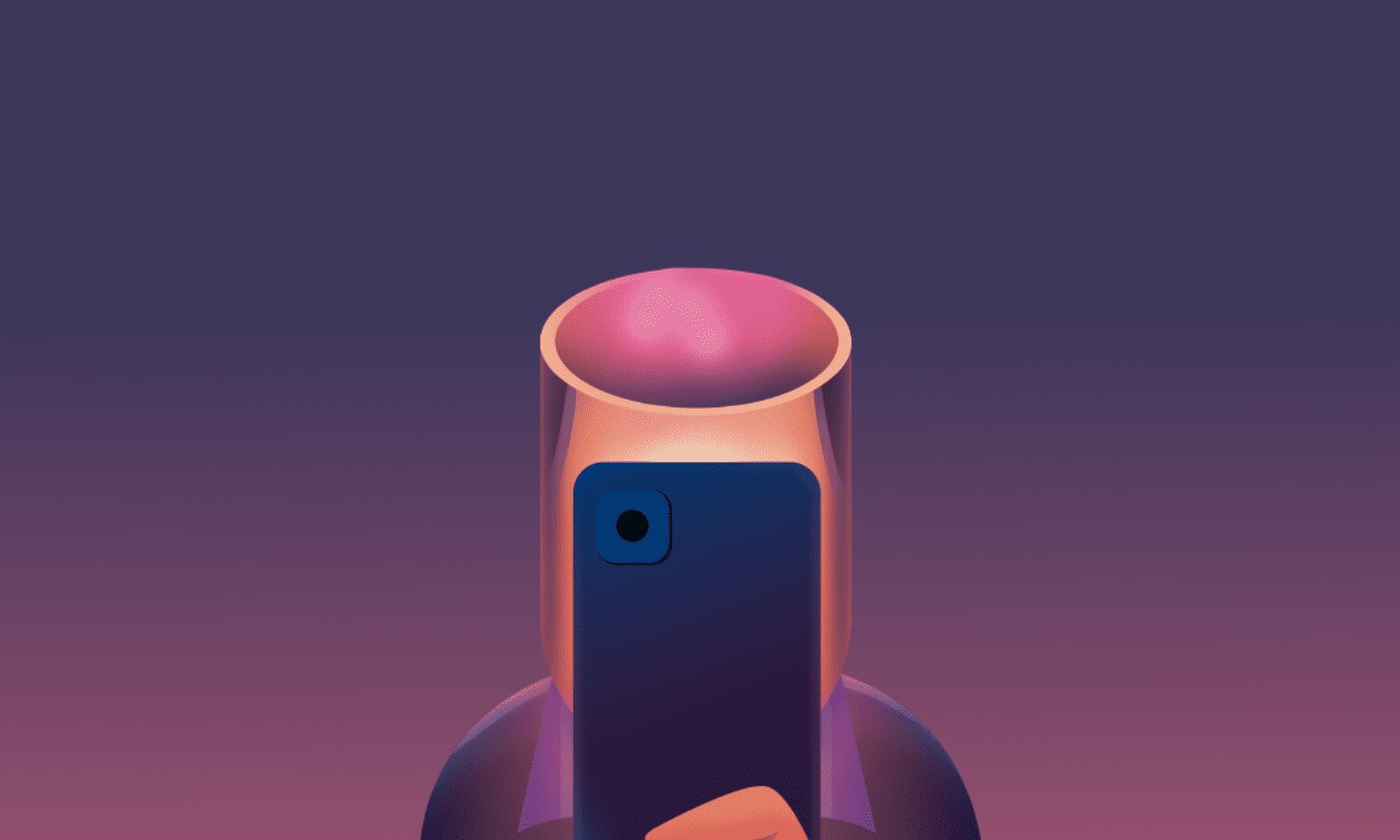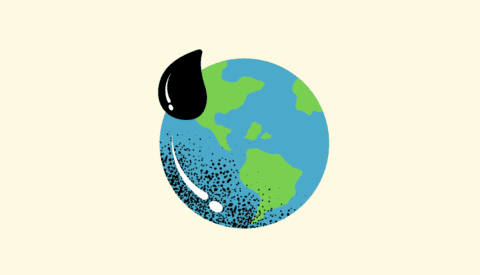Attention Society! Why Modern Distraction Is About More Than Technology
Technology is often blamed for our growing lack of focus. But our modern lifestyles — stress, a work system based on competitiveness and even our diet — also impair our ability to pay attention. Is this cause for concern or a natural consequence of our evolution? And what, if anything, can be done about it?
Article
2024

Article
According to Celtic legend, Lake Enol was created by tears the goddess Deva shed in a remote area of the lush Picos de Europa mountain range in northern Spain. At more than a thousand meters above sea level, the lake’s beauty is directly proportional to the sacrifice needed to contemplate it without hordes of tourists; you’ll have to arrive before 7:30 a.m., before private vehicles are restricted.
Driving a rental car, a young South Korean woman arrives shortly after 7 a.m. She walks to the edge of the lake, turns her back, switches on her phone camera, extends her telescopic selfie stick, mutters a few words in Korean, makes a few funny faces for a little over a minute and leaves the way she came, without turning around to look at the lake.
Today, Goddess Deva might shed the same tears she shed thousands of years ago — not due to the shepherds who refused her shelter on a stormy night, but due to the contempt shown before her creation.
Elvis Presley might also cry if he saw his Graceland Mansion visited every day by hundreds of fans with their eyes glued to their iPads. A situation that inspired — or rather, provoked – the British journalist Johann Hari to write Stolen Focus: Why You Can’t Pay Attention — and How to Think Deeply Again.
«The organization gives these devices to visitors to help them on the tour, or to consult something specific. But I realized that everyone, who has come to Memphis to worship their idol, would rather see Elvis’ palace on a tablet», Hari explains. Just like the young Korean at the Spanish lake, many come from the other side of the world — after investing time and money, and traveling thousands of kilometers — only to admire something through a screen.
Beyond technology
This is Hari’s second book on addictions, following Chasing the Scream, which looked into the war on drugs. His book on screens could be summed up in the newly coined word nomophobia, or the irrational fear of being without a mobile phone.
According to a survey by the optical company Vision Direct, each person spends an average of 10 hours a day looking at smartphones, laptops and televisions. Another study by App Annie, an organization dedicated to analyzing data from the application market, found that in 2020, we spent almost half of those hours on a mobile screen — 30% more than the previous year.
Focusing on Spain, the virtual network company NordVPN predicts that people in the country will spend 28 years, nine months and 10 days of our lives connected to the internet. Using the average life expectancy (83.4 years) as a reference, that means we will spend almost a third of our lives on computers and tablets but especially on smartphones. In Spain still, there are already almost 41 million regular users of social networks, according to the latest Digital Report by We Are Social, which represents 85.6% of the population.
The monopolization of attention is not limited to technology
But the monopolization of attention is not limited to technology. The lifestyle we have imposed on ourselves includes other distracting elements, as Hari lists in his book: stress, a work system based on competitiveness and even the way we eat impair our ability to pay attention.
Zeamo, a consulting firm on workplace well-being, reminds us that while our brain only represents 2% of our total body weight, it uses up to 20% of our energy: «The reason you are slow or unable to concentrate can simply be what you had for lunch».
Pollution also impacts our ability to pay attention. The U.S. National Center for Biotechnology Information, a government agency, published a study warning about the potentially harmful effects on the central nervous system of pollutants inhaled over the past decades. «Early childhood exposure to air pollution has been linked with impaired performances in cognitive tests, inattentiveness, slower development of working memory, deficits in gross and fine motor functions, and worse academic performance», the study said.
So what exactly is attention — that human value that more and more authors say modern life is stealing?
A human value
«Being attentive is being present», says philosopher Amador Fernández-Savater, who has just coordinated Disorders of Attention, an essay signed by several authors. He gives an example: «The health workers’ struggle for primary care is a clear case. Attention is not only a matter of personal perception, it is also the link with the other, like care. What do health workers fight for? For good care conditions, for being able to listen to each of the patients, each in their uniqueness, instead of attending them through a screen».
Fernández-Savater believes that society’s problem of distraction is political. «It has to do with time, with resources and with institutional contexts that are adequate or not», he explains, «and what is happening with health workers can be applied to school. Good teachers can make every effort to catch the attention of their students, but if they are working in bad conditions, with programs that are imposed, bureaucratic routines that take up time and prevent individualized attention to each of student, the problem is the same».
That bond with others is one of the factors that is most vulnerable to the effects of distraction
That bond with others, to which Fernández-Savater refers, is one of the factors that is most vulnerable to the effects of distraction, says Ángeles Eraña, director of the Mexican Network of Women Philosophers. «Our lifestyle pushes us to be more and more self-absorbed. And if the world continues to move in that direction, the idea of working together, collectively, in favor of objectives serving the greater good, will be more difficult to sustain», Eraña says.
«The pandemic is an example that exacerbated this situation. It made us see the consequences of considering the other as a danger, instead of the opposite», she says, adding that «fear is a mean of avoidance of reality. And given that public discourse in most countries is a discourse of terror, solidarity will be less and less present».
Having to face the challenges new technologies impose on us — such as artificial intelligence and its sudden arrival in our daily lives through ChatGPT — is hardly compatible with a lack of attention. Marta García Aller, journalist and author of The Unpredictable, notes that this is the first time in history that we are making this effort in real time and in a generalized way.
This unprecedented change can be dizzying, she says, «we have the tools in our hands to stay connected to the world, to watch the great spectacle of change with all its miseries, promises and advantages». These dizzying and ubiquitous changes create uncertainty, which does not leave much room for reflection.
Consumption vs. desire
Enrique Dans has a more optimistic vision. A professor of Innovation at Madrid’s IE Business School, he has just published «Everything Changes Again: How Web3 Will Revolutionize the World as We Know It», which looks at the influence that our current lifestyle has on our attention and our ability to deal even with virtual realities.
«The problem is that critics of technology base their arguments on a static conception of the human brain», he says, but the brain is «extremely modulable, and with a brutal capacity for adaptation» — something that differentiates humans from other species, which find it much more difficult to adapt to context changes.
«Nicholas Carr [a technology writer] told me that Google was making us stupid, but that is a view of ourselves that is static, not dynamic. To deny this second view is to deny biological principles», Dans says, using the example of mobile phones in schools: «Skeptics say that children shouldn’t use them in class because they get distracted, but I disagree. Instead, teach them not to be distracted by the mobile phone, and they will get something positive out of that device in their learning».
«It might sound a bit provocative, but I don’t think technology is the main issue», Fernández-Savater says. «I really think that we could consider it to be an effect that feeds back the problem. But I don’t think that it’s the focus».
Fernández-Savater quotes French philosopher Simone Weil, who already delved into the meaning of attention at the beginning of the last century: «There is a real desire when there is an effort of attention». The essential problem, Fernández-Savater believes, is the lack of desire in today’s society.
«We need to understand what desire is, and there is a fairly consensual distinction between desire and enjoyment. The latter has more to do with what we call consumption, which has a more immediate temporality and is normally satisfied with the acquisition of an object. It has a raw and ephemeral intensity, and of course it always leaves us unsatisfied. Desire has another temporality, which can be an entire life; it is not satisfied through an object, but rather creates them or passes through them, and can even go through moments of suffering», Fernández-Savater says.
«In our society, there is a lot of consumption and little desire, and that is the problem, because when there is desire, there is an effort to pay attention», he concludes.
Resistance and education
Spanish philosopher Enric Puig Punyet spent a year completely disconnected from the internet and wrote The Great Addiction about his experience. «As I later theorized in subsequent publications, the problem we have is the capitalization of our attention», he explains.
«This has been the case since the invention of the printing press, which completely changed our way of handling reality, and has been developing for a hundred years (as written about in Edward Bernays’ 1928 Propaganda). It has been the basis of most new communication technologies throughout the 20th century. The television was already largely based on how to constantly capture the attention of the audience, progressively shortening the stimulation times», Puig Punyet says.
Puig Punyet refers to cognitive capitalism, whose most transactional side is reflected in the so-called attention economy: «Our system is becoming more and more productivist and precarious, a combination that, by definition, prevents us from stopping. On the contrary, we have to be in constant movement of production and consumption».
The accumulation of attention generates more wealth than any merchandise can produce
Connectivity is no exception, he believes; on the contrary, he says that «the accumulation of attention generates more wealth than any merchandise can produce». For this reason, the system based on a continuous flow of information – in both directions: generation and consumption – cannot be stopped.
And there lies the cause of our great resistance to disconnection everyday. «While we can never totally disconnect», Puig Punyet says that disconnecting can help us be less dependent and to learn measure, which can reinforce our capacity for attention.
Education from childhood is key, Dans says: «To educate children, we have to change many things: from the way we structure a subject to the way we are trained; we must be one step ahead in the use of devices, which is not easy even for the most motivated teachers».
Dans concludes with a suggestion: «Children must be taught how to use a search engine, to differentiate between valid and non-valid sources, to verify real and reliable information. Focusing, maintaining the required attention on something specific is essential because, today, information is everywhere. And that is, in reality, the greatest change we are facing».
This content is part of a collaboration agreement of ‘WorldCrunch’, with the magazine ‘Ethic’. Read the original at this link.






